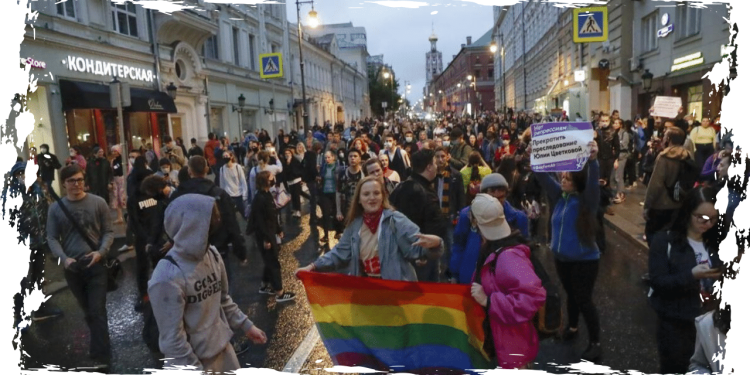On Tuesday, the ruling party of Georgia presented a draft legislation that aims to limit the rights of the LGBTQ+ community.
The “foreign influence” statute, another bill critics accuse the authorities of adopting from Moscow’s playbook, parallels the ideas of the Georgian Dream. Widely condemned for undermining democratic liberties and harming Georgia’s hopes of EU entry, it sparked weeks of major protests.
If passed, the law would prohibit same-sex weddings, gender-affirming care, changing one’s gender marker on official documents, adoption by same-sex couples, public acceptance of same-sex relations at gatherings and educational institutions, and depiction of same-sex partnerships in the media.
Shalva Papuashvili, parliament speaker and Georgian Dream member, unveiled the new initiative just one day after signing the “foreign influence” statute into force.
The “foreign influence” statute mandates news media and nonprofit organizations to register as “agents of foreign influence” if they receive more than 20% of their funding from overseas. It sparked massive protests in Georgia’s capital, Tbilisi, last month, and opponents have branded it “the Russian law” because it is similar to Russian regulations used by the Kremlin to suppress dissent.
Georgian President Salome Zourabichvili vetoed the bill, but the parliament overrode her veto, and Papuashvili signed it into law Monday.
One could also compare Georgian Dream’s measures to limit LGBTQ+ rights to existing legislation in Russia. Over the last decade, Russian authorities have also prohibited the public promotion of “non-traditional sexual relations,” gender-affirming care, and gender transition in official papers.
In the latest blow to the already troubled community, Russia’s Supreme Court effectively outlawed LGBTQ+ advocacy by classifying the existing LGBTQ+ “movement” in Russia as an extremist group and prohibiting it.










